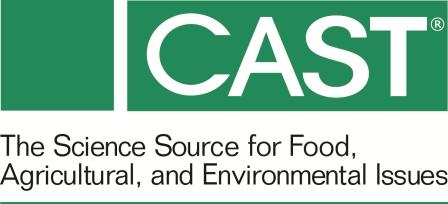Media Advisory: NC-FAR Hill Seminar, Monday, February 1, 2010
AGRICULTURE’S “PERFECT STORM”
Agricultural Productivity Strategies for the Future: Addressing U.S. and Global Challenges
Washington, D.C., January 27 — The second National C-FAR “Lunch~N~Learn” Hill Seminar of 2010 will be Monday, February 1, from 12:00–12:55 p.m. in 1302 Longworth House Office Building
“We need to end the three-decade-long pattern of living beyond our means; importing more than we export, borrowing more than we lend, spending more than we earn, and consuming more than we produce,” says Dr. Buchanan. “We are most concerned about the apparent lack of commitment by the United States and other countries to make the research and education expenditures needed to address the problems affecting our survival on this planet. Complacency is unwarranted at this time of unprecedented challenges.”
“We are pleased to help facilitate the necessary discussions about how multidisciplinary research and education can help attain long-term solutions for pressing agricultural issues,” said Chuck Conner, President of the National Coalition for Food & Agricultural Research (National C-FAR). “This presentation is an excellent example of how federally funded food and agriculture research and extension can produce the scientific outcomes and outreach needed to meet 21st century challenges and opportunities.”
Dr. Gale Buchanan: Dean and Director Emeritus, Athens, College of Agricultural and Environmental Sciences, University of Georgia, Tifton Campus. Dr. Buchanan is the former USDA Under Secretary for Research, Education, and Economics. He chaired the Council for Agricultural Science and Technology (CAST) Task Force for CAST Issue Paper 45, Agricultural Productivity Strategies for the Future: Addressing U.S. and Global Challenges.
The seminar is open to the public and the media.
*******
NATIONAL C-FAR is a nonprofit, nonpartisan, consensus-based, and customer-led coalition that brings food, agriculture, nutrition, conservation, and natural resource stakeholders together with the food and agriculture research and extension community, serving as a forum and a unified voice in support of sustaining and increasing public investment at the national level in food and agricultural research, extension, and education. National C-FAR’s Hill Seminar Series, now entering its fifth year, regularly presents leading-edge researchers working to provide answers to pressing issues confronting the public and Congress. The Hill Seminar Series and Success Profiles help demonstrate the value of public investment in food and agricultural research—investment that returns 45 percent per year on average. Go to http://www.ncfar.org/Hill_Seminar_Series.asp for more information about the seminar series and past topics. Interviews with National C-FAR President Chuck Conner are available by request. For additional information, go to www.ncfar.org; or contact Tom Van Arsdall, Executive Director, at tom@vanarsdall.com or (703) 509-4746.
CAST is an international consortium of scientific and professional societies. It assembles, interprets, and communicates credible science-based information regionally, nationally, and internationally to legislators, regulators, policymakers, the media, the private sector, and the public. All CAST Commentaries and Issue Papers are available online without charge at www.cast-science.org.
